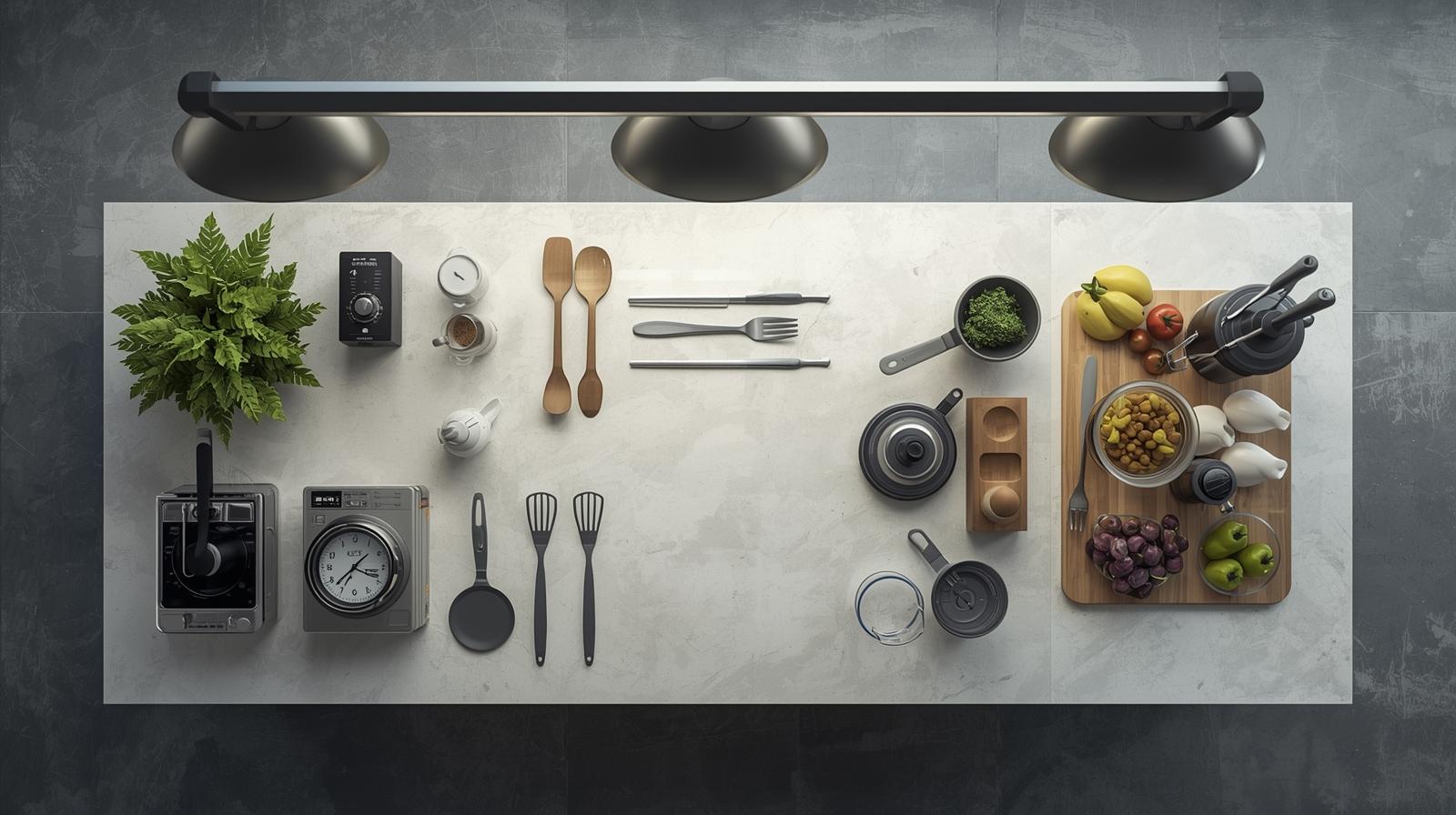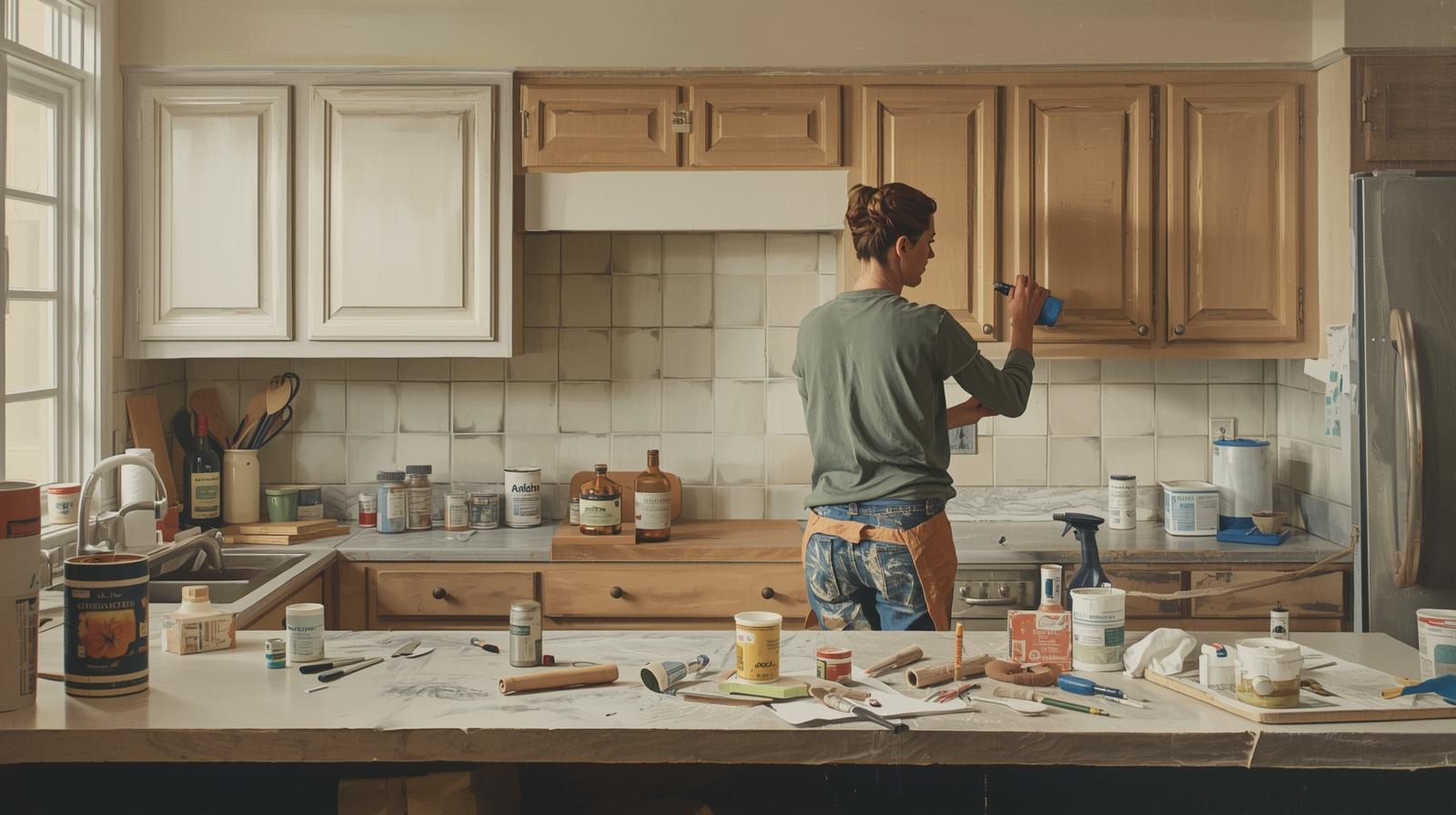What Not to Fix or Update When Selling a House

So, you’re thinking of selling your home… and so begins the sudden influx of questions about what to do and what not to do to make sure you’re making the smartest decisions possible. We get it. When preparing your house for sale, it's important to first get all your thoughts down on paper. It helps you visualize and prioritize what to tackle first, like important repairs and updates that can increase your home’s sale value. While certain home improvements can increase your home's value and appeal to potential buyers, others may not provide much of a return on investment. That’s why we put together this helpful guide, so you can make better-informed decisions knowing what not to fix when selling your house, saving you time, money, and effort, and allowing you to focus on the most impactful changes.
The Importance of Speaking with An Expert (or Two)
Before jumping right into any repairs or updates, it’s going to serve your best interest to first consult with experienced real estate agents. These professionals have an in-depth understanding of the local housing market and can provide valuable insights into which home improvements are most likely to attract the right type of buyers and increase your home's value. They can also advise you on what not to fix, helping you avoid unnecessary expenses and potential delays in the selling process– because no one wants to have their home sit on the market for too long.
The Moneymakers
While some repairs and updates may not be worth the investment, there are certain smaller fixes that can make a big difference in how potential buyers perceive your home. These include:
- Fixing leaky faucets and toilets
- Patching holes in walls and ceilings
- Replacing broken light fixtures and switches
- Updating outdated or mismatched hardware
- Painting walls in neutral colors
- Decluttering and deep cleaning
These small, yet mighty, improvements can give your home a fresh, well-maintained appearance without breaking the bank.
What Not to Fix
- Appliances: Listen, we get that this could be easily debated, but unless your appliances are severely outdated or non-functional, replacing them may not be necessary. Buyers often prefer to choose their own appliances based on their personal preferences and needs, so if you’re debating whether or not to put your money towards new appliances or say repainting your kitchen cabinets so they look fresh and clean, opt for the latter.
- Driveway: While a cracked or stained driveway may not be the prettiest thing to look at, repairs can be expensive and may not impact your home's value enough to focus on this area of the house. Instead, focus on ensuring the driveway is clean and free of debris.
- Major Room Remodels: Unless working with a pre-sale renovation company that has the experience and can front the cash needed for a massive remodel of the kitchen, bathrooms, or other rooms, it may not be worth your time. These projects can be expensive and time-consuming, and potential buyers may not share your taste in design or materials.
- Home Technology: While smart home features can be appealing to tech-savvy buyers, investing in extensive home automation systems or high-end entertainment setups typically don’t show a high enough return to be prioritized.
- Windows: Replacing windows can be costly. Instead, focus on making sure existing windows are clean, functional, and well-maintained. If windows are drafty, consider more affordable solutions like weather stripping or window insulation kits.
- Fixtures: Unless fixtures are severely outdated or non-functional, replacing them may not be necessary. A thorough cleaning and polishing of existing fixtures can often suffice in giving your home a fresh, well-maintained appearance.
- Minor Home System Issues: If your home's systems, such as HVAC or electrical, are functioning properly, there's no need to invest in upgrades or replacements. However, if there are significant issues that could impact the safety or functionality of the home, it's best to address them before putting your house on the market.
- Worn or Old Flooring: Unless your flooring is severely damaged or poses a safety hazard, replacing it may not be necessary. A thorough cleaning, polishing, or refinishing of existing flooring can sometimes be enough to improve its appearance and appeal to potential buyers.
The Questions on Everyone’s Mind
- Should I fix everything before putting my house on the market? No, it's not necessary to fix everything before selling your house. Save your money and instead focus on only the most essential repairs and updates that will make your home more appealing to potential buyers and increase its value.
- How do I prioritize repairs and updates when selling my house? Consult with a real estate professional to determine which repairs and updates are most likely to attract buyers and provide a good return on investment. Prioritize fixes that address safety concerns, improve functionality, and enhance your home's overall appearance.
- Can I sell my house as-is without making any repairs? Yes, you can sell your house as-is, but it may be more challenging to attract buyers and it definitely won’t sell for the highest possible price, which means you could be losing out on built-up equity. Be prepared to disclose any known issues or defects and consider offering a repair credit or adjusting your asking price accordingly if you do plan on selling as-is.
When selling your house, it's important to be strategic about which repairs and updates to prioritize. By focusing on the most important fixes and consulting with real estate professionals, you can avoid unnecessary expenses and still maximize your home's value. Remember, not every repair or update is worth the investment, and sometimes, less is more when it comes to preparing your house for sale.

Danielle has a demonstrated experience of 8 plus years in high-end residential, hospitality, and solid credentials in Interior Architecture and Business, she's the cornerstone of Revive's design projects, blending innovation with function.
Recent articles
Unlocking equity is hard,
we've got your back.
See what's possible, it's your real estate.
Discuss homeWhile there is an abundance of evidence that supports that renovated turnkey homes sell faster and for more, Revive, nor the Contractor, can guarantee a specific as-is or after renovation value or the exact time that it would take to get a renovated home sold. Further, Revive cannot provide a guarantee that the real estate market will not experience fluctuations or a decrease during the renovation or sales period.




.jpg)


